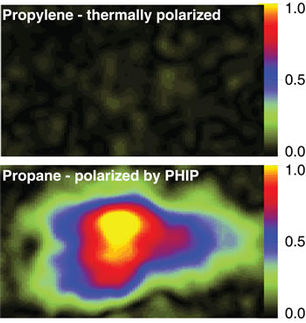Cooperation Makes Microreactor Technology Accessible to Fine-Chemistry and Pharmacy
The Dutch companies Micronit Microfluidics, FutureChemistry and Flowid announced the start of a cooperation named Access2Flow. Together, the three companies will offer a new generation of microreactor systems that enable chemists to quickly and safely perform fluid reactions on an industrial scale.
Access2Flow will function as a so-called ‘one-stop shop’ for the fine-chemical and pharmaceutical industry by allowing synthesis reactions to be carried out in a continuous-flow system. The glass microreactors of Access2Flow will enable chemists to produce fine-chemical and pharmaceutical compounds. Processes that have always been performed in small batches can now be turned into continuous processes. With this technology, the production of chemical compounds can be done faster, more efficiently and safer. Furthermore, the continuous flow reactors can easily be scaled to include reaction volumes of tens of millimetres and even more.
Each of the three companies will bring their respective areas of expertise to the table. Micronit has years of experience in manufacturing glass microreactors. FutureChemistry has experience in testing, optimizing and implementing chemical processes in these microreactors. Furthermore, FutureChemistry develops and supplies automation equipment to control continuous flow reactors. Flowid has process technologists with the expertise to distribute microreactor systems on an industrial scale.
Research Director of FutureChemistry Pieter Nieuwland explains: “Testing new chemical reactions is often done in a traditional way: step by step. With the technology of Access2Flow, these reactions have become full-continuous processes that we can optimize with our software and translate to much larger reactors. Such continuous-flow processes go better and faster than traditional batch methods. The products and expertise of the three companies in this cooperation go together perfectly. Chemists gain time from two sides: in testing new reactions as well as in scaling up to production volumes.”
General Manager of Flowid Jeoffrey van den Berg adds to that: “In order to actually profit from the advantages offered by microreactor technology, some practical barriers need to be overcome. We see that many companies have not yet taken the step from batch to continuous flow production. Lack of experience can be one reason, but maybe alternative production methods have just not been considered by these companies. To simplify the step from batch to continuous flow, a cooperation of companies is now ready to support organisations to take this step.”
Micha Mulder, CEO of Micronit, concludes: “At the moment we are talking to a couple of large chemistry groups that showed their willingness to do the investments needed to make their chemical processes more efficient, cheaper and safer. They are willing to take the step to continuous flow chemistry. Access2Flow can help these companies to take this step and to stay ahead of their competitors.”
Other news from the department business & finance
These products might interest you
Most read news
More news from our other portals
See the theme worlds for related content
Topic world Synthesis
Chemical synthesis is at the heart of modern chemistry and enables the targeted production of molecules with specific properties. By combining starting materials in defined reaction conditions, chemists can create a wide range of compounds, from simple molecules to complex active ingredients.

Topic world Synthesis
Chemical synthesis is at the heart of modern chemistry and enables the targeted production of molecules with specific properties. By combining starting materials in defined reaction conditions, chemists can create a wide range of compounds, from simple molecules to complex active ingredients.

























































